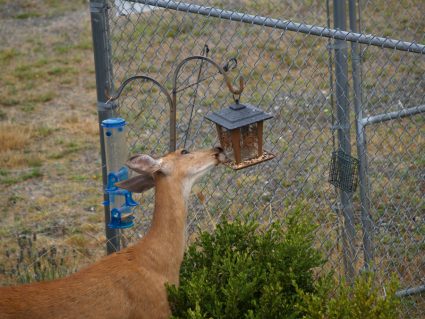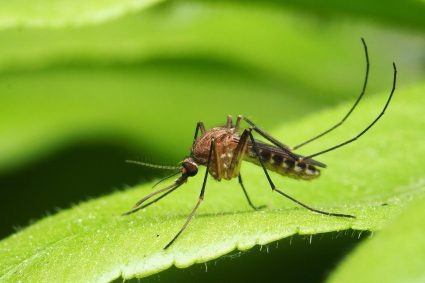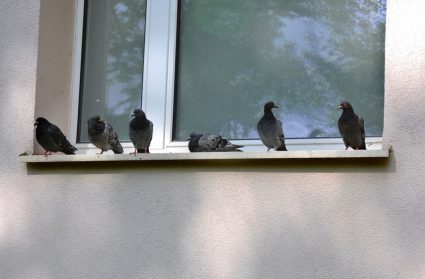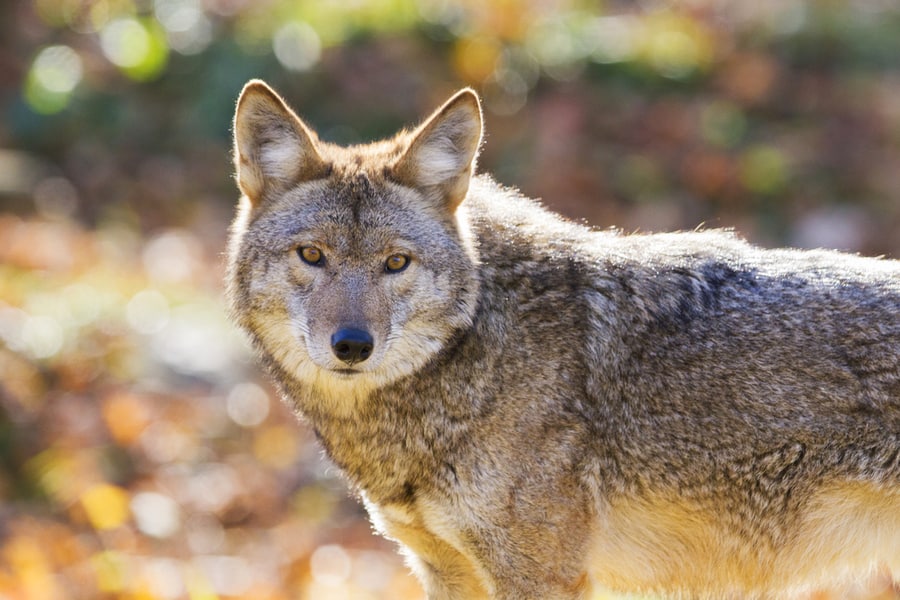
Do coyotes make any sounds at night?
What kind of vocalizations do coyotes make at night?
How can you tell if the sounds you hear are from a coyote?
Coyotes are fascinating and adaptable animals found in many parts of North America. They are a common sight and sound in many rural and suburban areas. They are known for their distinctive vocalizations, including:
- High-pitched howls
- Yips
- Barks
However, many people are unfamiliar with the sounds that coyotes make at night. The vocalizations of coyotes at night can be quite different from what you might hear during the day.
Understanding these differences can help you better appreciate these fascinating animals’ unique behavior and communication.
This article will delve into the various sounds that coyotes make at night, including the different types of calls and their meanings.
We will also compare and contrast these sounds with what you might hear during the day and explore the sequences of sounds typically used in a coyote’s nighttime call.
3 Common Sounds Coyotes Make at Night
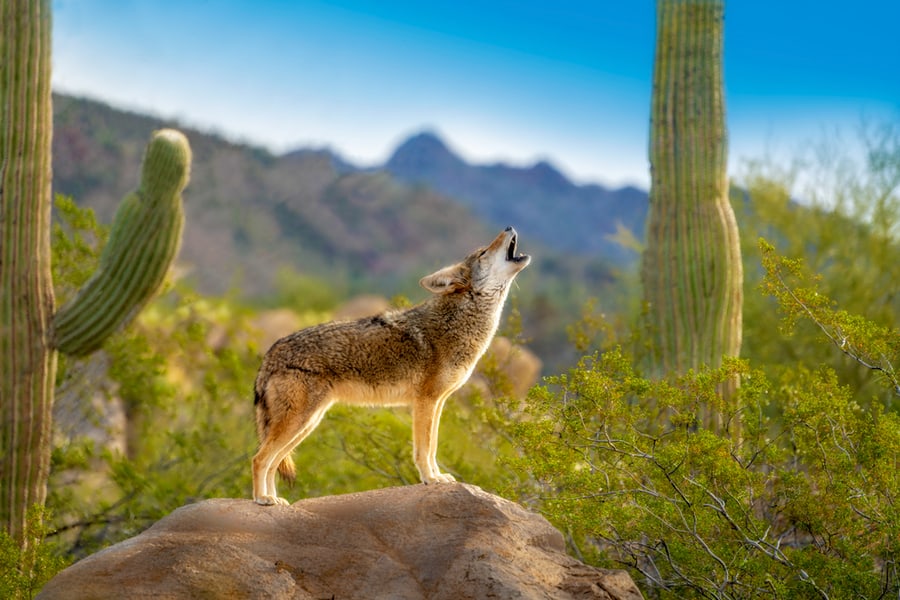
Coyotes make three common sounds at night: howling, yipping, and barking.
They use these varieties of vocalizations at night to communicate with each other and establish their territories.
Understanding the meaning and purpose of these sounds can give us a deeper appreciation for the behavior and communication of these fascinating animals.
1. Howling
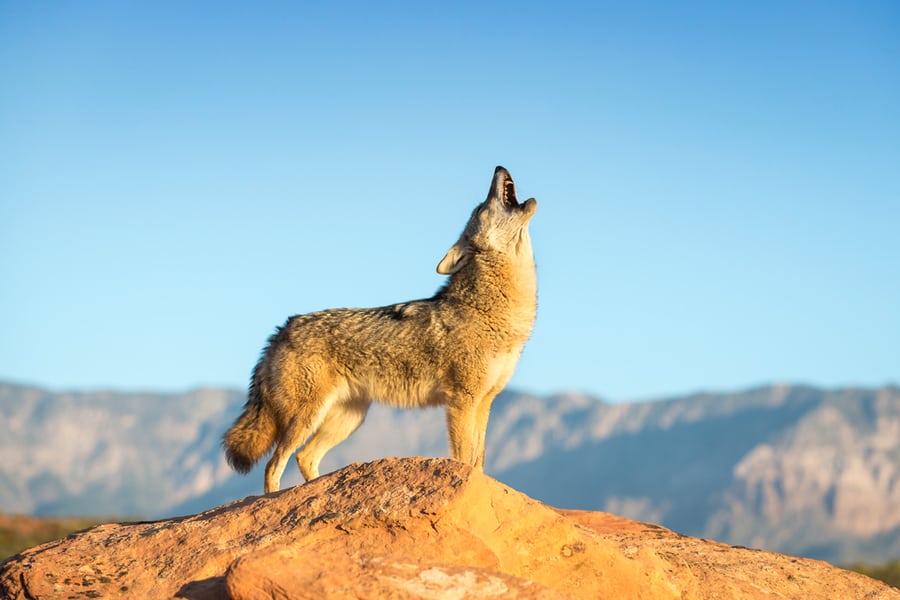
A howl is one of the most common sounds from coyotes at night.
Coyotes often howl in a group, and the howls of multiple coyotes can create a chorus of voices. This is thought to be a way for the animals to communicate with each other and establish their territories.
Howling is a long, high-pitched call often heard by coyotes at night. This call can be heard from miles away.
When a coyote howls, it sends a message to other coyotes in the area, letting them know where it is and that this is its territory.
When multiple coyotes howl together, it creates a chorus of voices that can be quite eerie but fascinating to listen to.
Howling can also be used as a form of social bonding between members of a pack.
2. Yipping
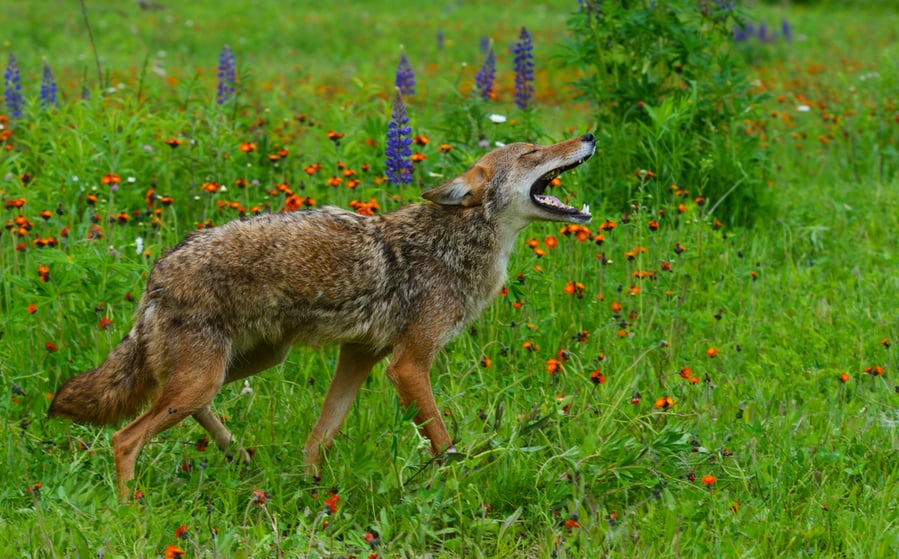
Another common sound you might hear from coyotes at night is the yip.
Yipping is a short, sharp, high-pitched call often heard in a series of yips. Coyotes may use this call to express excitement or distress.
Yipping can often be heard when coyotes are hurting or playing together. It is a way for them to stay in contact with each other and coordinate their actions.
Yipping can also be heard when a coyote feels threatened and may use this call to warn other coyotes in the area.
3. Barking
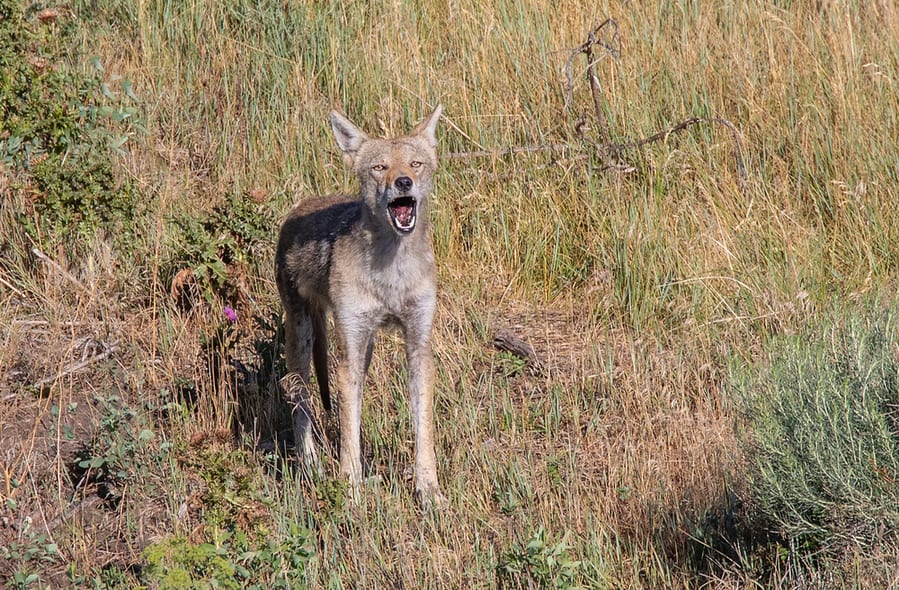
Barks are another common sound that you might hear from coyotes at night. Barking is a short, sharp call that can be heard as a single bark or in a series of barks.
Coyotes use this call to express alarm or aggression. For example, if a coyote encounters a potential threat, such as a human, it may bark to warn others of danger.
Barking can also be heard when coyotes defend their territory or a food source. It is a way of telling other animals that they are not welcome.
Other Sounds
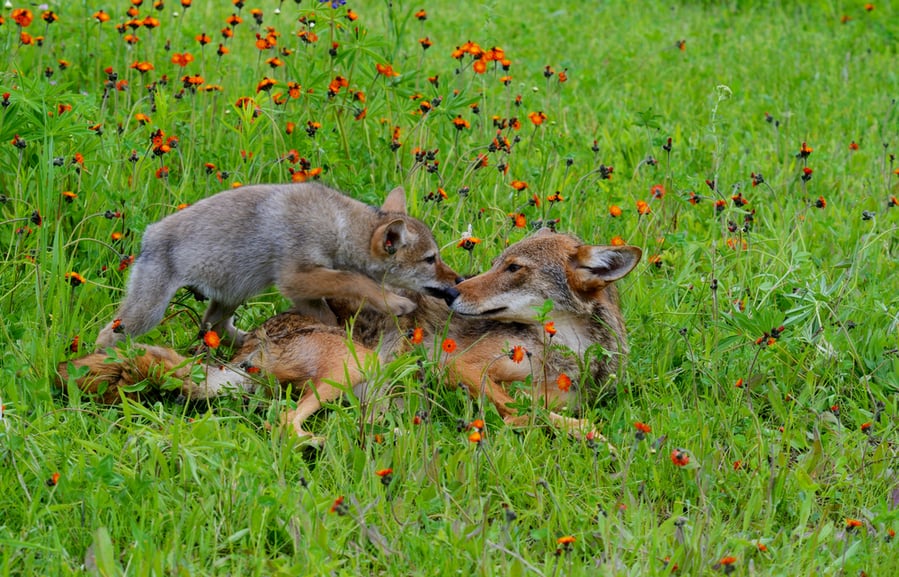
It is worth noting that coyotes may make other sounds, such as whining and growling at night, but these sounds are less common than howls, yips, and barks.
Note that coyote vocalizations at night are different from their daytime vocalizations.
Coyotes are more active and vocal at night but more likely to be quiet during the day. This behavior is called crepuscular, which means they are active during dusk and dawn.
The typical sequence of sounds in a coyote’s nighttime call is usually a combination of howls, yips, and barks. Coyotes may start with a howl, move on to a series of yips, and finish with a series of barks.
This sequence can vary depending on the situation and the individuals involved.
How Can I Tell if What I Am Hearing Is a Coyote?
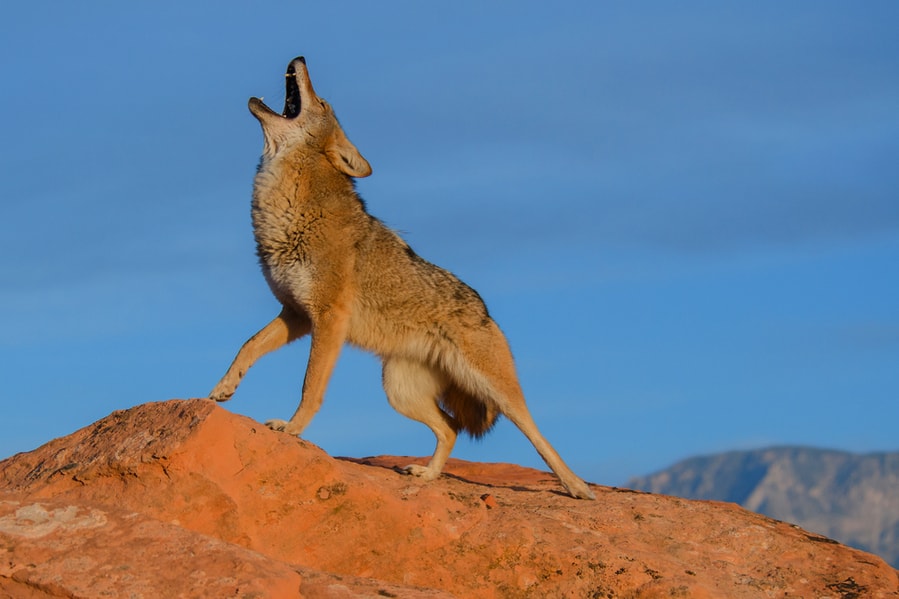
There are a few ways to tell if the sound you hear is a coyote.
These include:
1. Timing

Coyotes are most active at night, so if you hear a sound in the evening or early morning, it is more likely to be a coyote.
2. Sound

Coyotes make various sounds, including howls, yips, and barks.
These sounds are distinct from other animals, such as dogs and wolves.
3. Location

Coyotes are found throughout North America but are more common in rural and suburban areas.
If you live in an area where coyotes are known to be present, it is more likely that the sound you hear is a coyote.
4. Sound Sequence
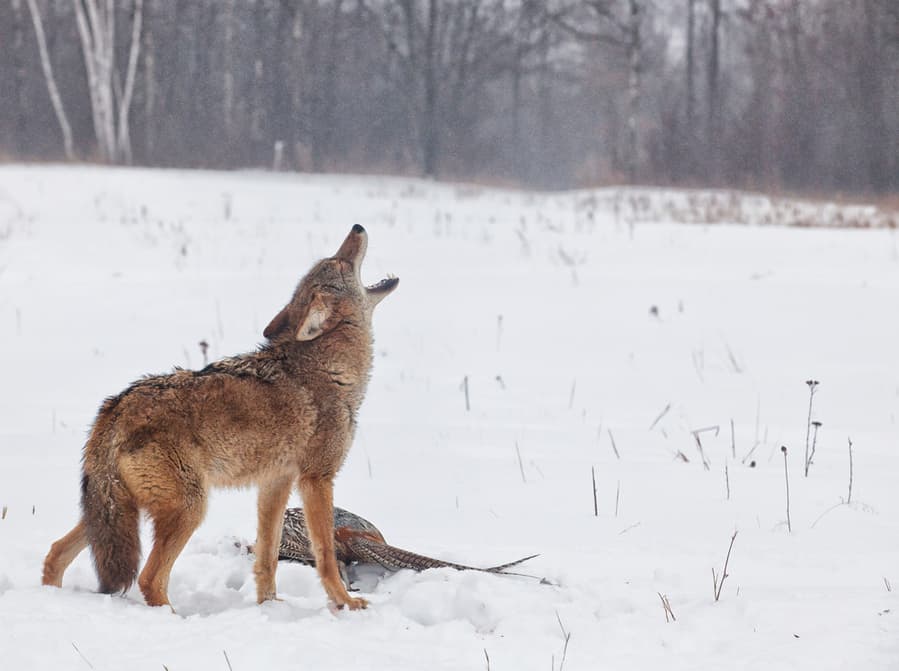
Coyotes often howl, yip, and bark in a specific sequence, which can indicate that you hear a coyote.
5. Other Signs
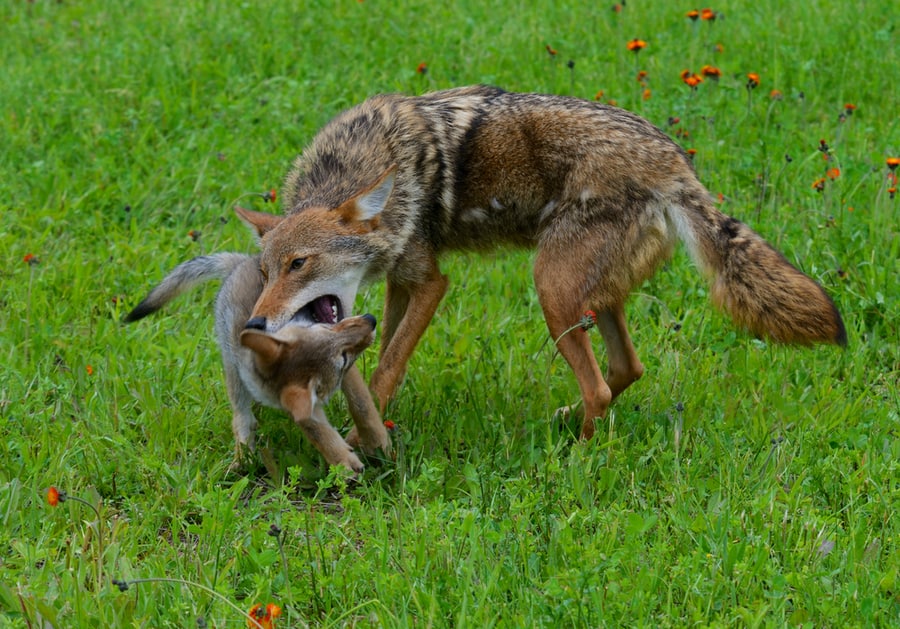
If you see a coyote or tracks of one, it is more likely that the sound you are hearing is from a coyote.
It is worth noting that other animals, such as dogs and foxes, may make similar sounds, especially at night.
If unsure, you can try recording the sound and comparing it with recordings of known coyote vocalizations online.
Summary
Understanding the different sounds that coyotes make at night can give us a better understanding of these fascinating animals and their behavior and communication.
Coyotes use a variety of vocalizations at night, including howls, yips, and barks, to communicate with each other and establish their territories.
It is worth keeping an ear out next time you are outside at night and listening to the unique sounds of the coyote.
Frequently Asked Questions
What Kind of Noise Does a Coyote Make at Night?
When the night falls, you may be able to hear the unique vocalization of a coyote.
Their group calls, known as yip-howls, are characterized by a combination of short howls with a rising and falling pitch, along with sharp yips, yaps, and barks.
While hearing or seeing a coyote may be unexpected, it is not a cause for concern.
Why Do Coyotes Scream in the Night?
There are several reasons why coyotes may make their characteristic screams at night. One is to summon their family group or pack back together after they have been hunting separately.
Additionally, coyotes may use this vocalization to assert their presence to other packs, warning them not to intrude on their established territorial boundaries.






